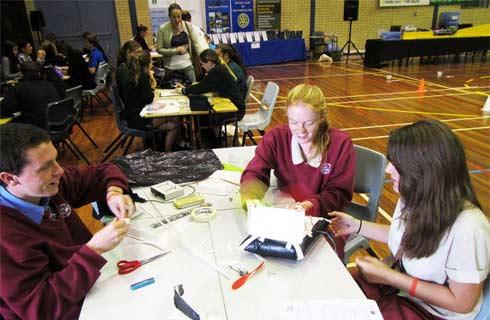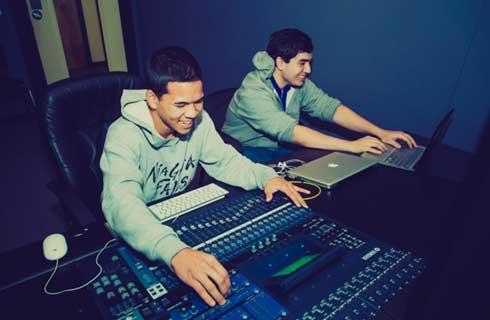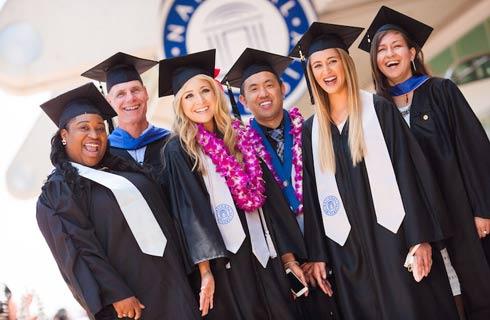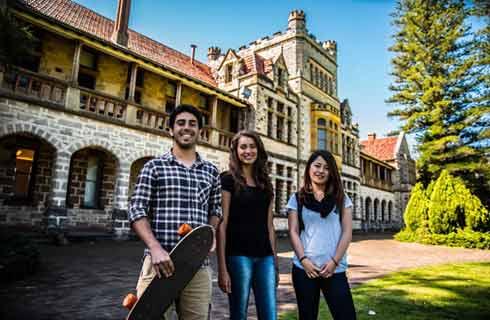音乐学士-音乐理论
Bachelor of Music in Music Theory

学历文凭
Bachelor Degree

专业院系

开学时间

课程时长

课程学费

国际学生入学条件
IDP—雅思考试联合主办方

雅思考试总分
6.0
- 雅思总分:6
- 托福网考总分:60
- 托福笔试总分:160
- 其他语言考试:NA
CRICOS代码:
申请截止日期: 请与IDP联系 以获取详细信息。
课程简介
Northwestern's Program in Music Theory and Cognition is unique in its combination of two related disciplines that share a common goal: to examine how musical structure interacts with creativity (composition, improvisation), performance (reproduction, movement), and reception (listening and interpretation).<br><br>The concept of the listener is thematic to our research, and inherently rich and diversified in its definition and application: it includes the reconstruction of historical listeners circumscribed by stylistic conventions as much as it accounts for contemporary listeners experiences of global soundscapes and electronic media. We understand the interactions of music theory and cognition as fluid and capable of taking different forms and using different methodologies. This includes music theory informed by cultural and historical knowledge of listening environments and current research in cognition, as well as empirical research involving methods such as corpus studies, lab experiments, and fieldwork. <br><br>This breadth of epistemological perspective and diversity of methodological approaches is reflected in the wide spectrum of repertoires studied by our internationally acclaimed faculty, reaching from the eighteenth century to electronic dance music. We seek PhD students who wish to become professional music theorists in academic settings, and we welcome applicants whose research interests intersect with our particular strengths in schema theory, topic theory, rhythm and meter, musical meaning, embodiment, popular music, and videogame music.
相关申请
 预科
预科 奖学金
奖学金 实习机会
实习机会 在校学习
在校学习 跨境学习
跨境学习 校园授课-线上开始
校园授课-线上开始 在线/远程学习
在线/远程学习
开学时间&学费
学费信息仅供参考,请与IDP联系以获取详细信息
| 开学时间 | 时长 | 学费 | 地点 |
|---|
学校排名

世界排名22
数据源:
泰晤士高等教育世界大学排名
关于西北大学

西北大学这所被认为在中西部最为精英的顶级大学,是美国十大名校联盟中唯一的一所私立学校。虽不是常青藤联盟的成员,但比起在美国东部地区同等级的学校来说更专注于教学的实用性。与它邻近的竞争者芝加哥大学,以及除宾大外的所有常青藤学院相比,西北大学的教育更具有职业导向性。西北大学一半的本科生都是被艺术和科学学院录取的,而另一半则分布在全美知名的5个专业学院之中。西北大学莫迪尔新闻学院唯一一所属于顶级私立大学的新闻学院,会给学生记者发放IPOD,便携式DV,可旋转笔记本,并提供非常多全国顶级报社、杂志社、电视台的奖学金。西北大学同样还提供4年的快捷新闻学学士/硕士项目。西北大学拥有常青藤盟校的学术标准和十大名校联盟中公立学校的气质。西北大学占据了美国高等教育的一席特殊之地。它拥有和常青藤学校一样的学术标准,十大名校联盟中公立学校的精神气氛,并且与杜克,斯坦福以及范德比尔特大学一样,在NCAA的赛事中拥有骄人的战绩。
本校相关课程

Master of Fine Arts in Writing for the Screen and Stage
学历文凭
Masters Degree
开学日期
课程费用总额


Master of Fine Arts in Stage Design
学历文凭
Masters Degree
开学日期
课程费用总额


Master of Public Health
学历文凭
Masters Degree
开学日期
课程费用总额


Master of Product Design and Development Management
学历文凭
Masters Degree
开学日期
课程费用总额


Master of Business Administration (Two Year)
学历文凭
Masters Degree
开学日期
课程费用总额


Master of Science in Materials Science and Engineering
学历文凭
Masters Degree
开学日期
课程费用总额

其他相关课程

音乐文学士[一般]
 滑铁卢大学
滑铁卢大学学历文凭
Bachelor Degree
开学日期
课程费用总额


音乐文学士(荣誉学位)
 圣弗朗西斯泽维尔大学
圣弗朗西斯泽维尔大学学历文凭
Bachelor Degree with Honours
开学日期
课程费用总额


音乐学硕士
 达尔豪斯大学
达尔豪斯大学学历文凭
Masters Degree
开学日期
课程费用总额


音乐学士
 达尔豪斯大学
达尔豪斯大学学历文凭
Bachelor Degree
开学日期
课程费用总额


音乐文学士
 爱德华王子岛大学
爱德华王子岛大学学历文凭
Bachelor Degree
开学日期
课程费用总额


音乐教育学士
 爱德华王子岛大学
爱德华王子岛大学学历文凭
Bachelor Degree
开学日期
课程费用总额










 美国
美国